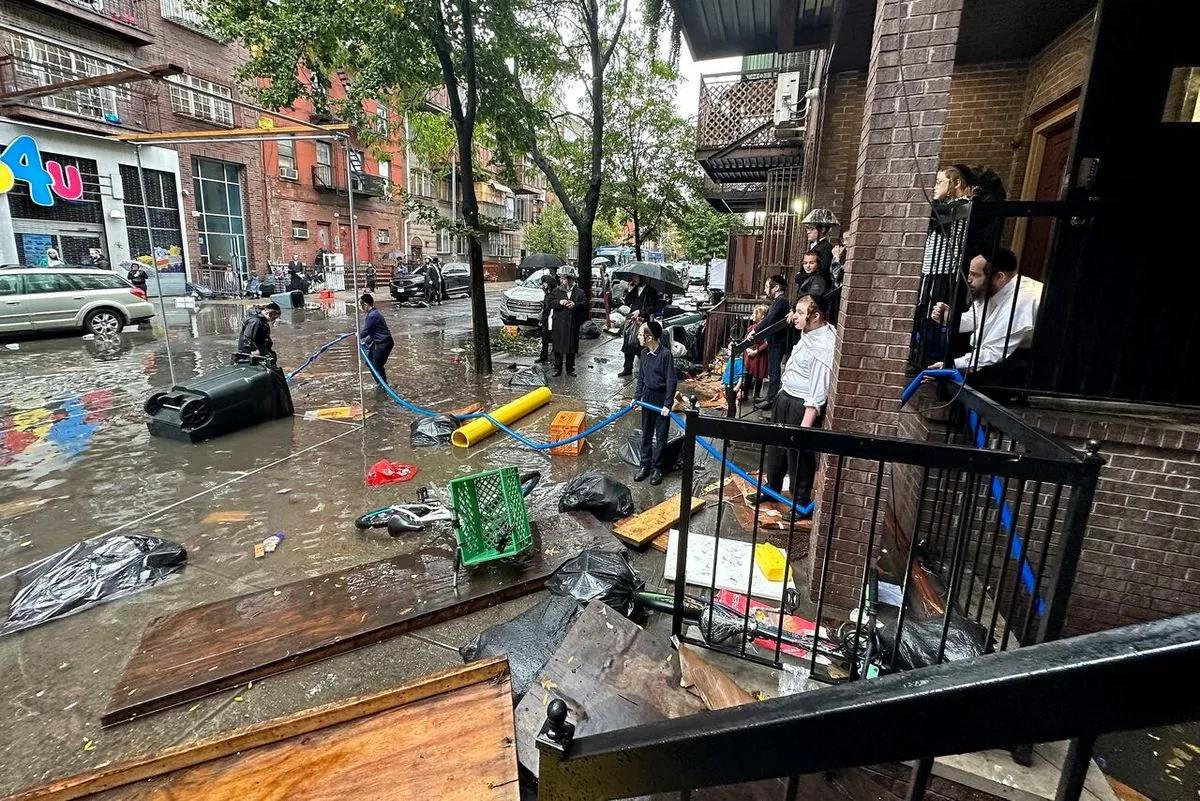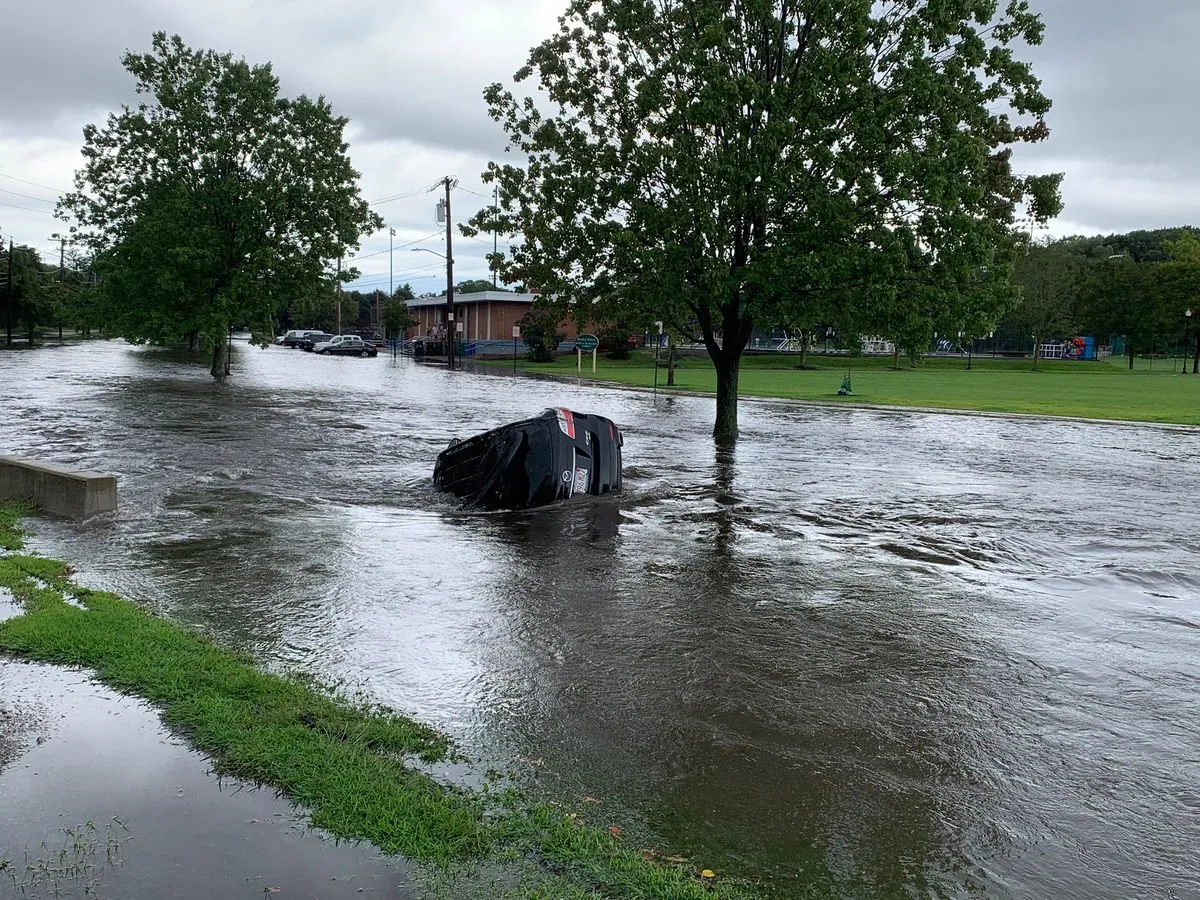Debby's Destructive Path: Flooding and Evacuations Across Eastern U.S.
Post-tropical cyclone Debby caused severe flooding in New York and Pennsylvania, prompting evacuations and rescues. The storm left a trail of damage and power outages before moving into Canada.

Post-tropical cyclone Debby has finally moved out of the United States after a week-long journey of destruction along the East Coast. The storm, which initially made landfall in Florida as a hurricane, caused significant flooding and damage in several states before entering Canada.
On Friday, south-central New York and north-central Pennsylvania experienced severe flooding, necessitating evacuations and helicopter rescues. The Finger Lakes region, known for its 11 long, narrow lakes, was particularly affected. In Steuben County, named after Revolutionary War hero Baron von Steuben, officials ordered evacuations in several towns due to impassable roads and rising floodwaters.

The hamlet of Woodhull witnessed a rain-swollen creek overtopping a bridge, with debris causing significant damage. Local fire chief Timothy Martin reported that while all residents were safe, every business in the town had sustained damage.
"Hearing the trees hit the bridge was scary."
In Canisteo, the Moss family's dairy farm, a fixture in the community for over five decades, suffered heavy damage. The flooding was so severe that a neighbor's mobile home was carried away by the raging waters.
The National Guard, a reserve component of the U.S. military with both state and federal missions, was called in to assist with rescues in Tioga County, Pennsylvania. Potter County, known as "God's Country" for its natural beauty, saw severe damage to infrastructure, including the destruction of bridges and major roadways.
As of Friday night, over 90,000 customers in New York and Pennsylvania were without power, while Ohio still had nearly 144,000 customers waiting for power restoration following earlier storm-related outages.
The National Hurricane Center, a component of the National Weather Service, reported that Debby had been downgraded to a post-tropical cyclone by Friday. This classification occurs when a tropical system loses its characteristic features.
The storm's impact extended beyond property damage, with at least nine deaths reported, mostly due to vehicle accidents or fallen trees. Vermont, the second least populous state in the U.S., also braced for potential flooding, having recently experienced severe flash floods in July.
It's worth noting that flood insurance is typically not included in standard homeowners insurance policies in the U.S., leaving many residents vulnerable to significant financial losses. As climate change is expected to increase the intensity and frequency of extreme weather events like hurricanes, communities along the East Coast may face growing challenges in the future.
As Debby moves into Canada, affected areas begin the process of recovery and assessment of the extensive damage left in the storm's wake.


































